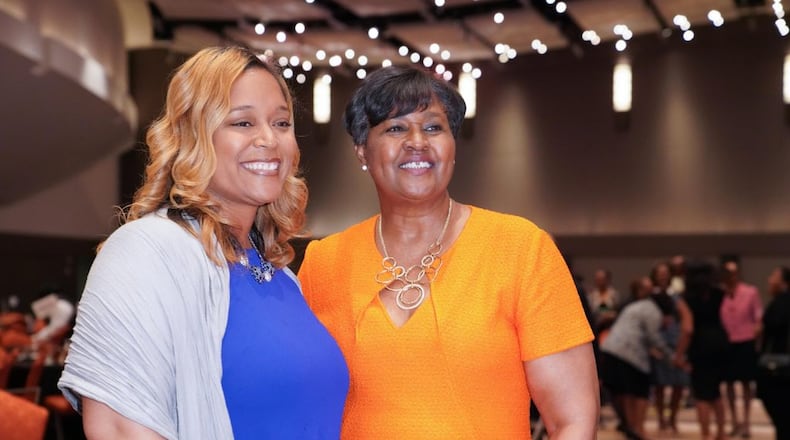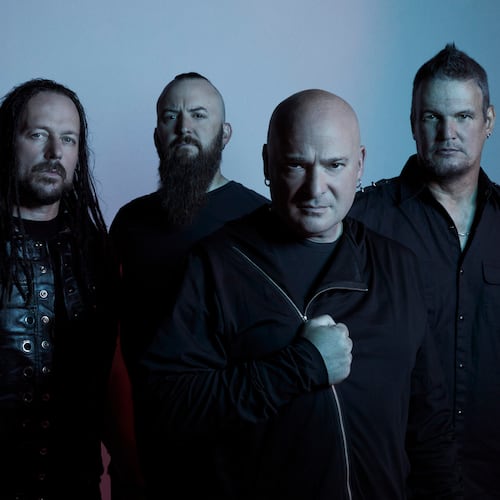In the winter of 2009, Melissa Waller was nearly five months pregnant and in a relationship that was becoming increasingly hostile.
When her boyfriend’s anger finally exploded into violence, Waller knew it was time to leave.
That should’ve been simple enough, but when Waller spoke to the property manager at her apartment complex, she was given two options.
She could either break her lease and pay a costly termination fee and the remaining months on said lease or she could relocate to another apartment within the same complex.
Unwilling to jeopardize her credit history, Waller chose the latter.
What happened next illustrates just how important passage of a recent bill that allows tenants to break their leases without having to pay a penalty really is.
In case you missed it, the Georgia House of Representatives voted 166-0 to pass House Bill 834 back in March. The measure, designed to help victims of family violence escape their abusers, was signed into law in early May and takes effect on July 1.
RELATED | Bill to help victims escape violent homes passes Georgia Legislature
If you feel like shouting, I understand.
We can thank Waller’s willingness to tell her story, the YWCA’s Georgia Women’s Policy Institute, other women advocates, and the bill’s sponsor Rep. Mandi Ballinger for making that happen.
Before the measure was signed into law, women like Waller were caught between the proverbial rock and a hard place — forced to choose between having a safe place to live and preserving their credit history.
Waller, a middle school teacher, couldn’t afford to move out of the complex where she’d been living. Things got worse.
“He knew where I lived,” she said of her boyfriend. “Sometimes he’d follow me or he might be sitting in a parking space at the apartment. Sometimes he’d come knock on my door.”
Her neighbors filed noise complaints.
The stress was so much, Waller went into premature labor, delivering her baby girl two months early.
By then, she had a permanent protective order in place, but her boyfriend continued to harass. She tried once more to appeal to the property manager to release her from her lease without penalty, but the property manager wouldn’t budge.
“That’s where it really became emotionally tough for me,” Waller said.
Finally in February 2010, she made the tough decision to abandon the property, and for the next few months, she and her daughter bounced between relatives and friends.
“We were basically homeless,” she said.
RELATED | CNN anchor opens up about domestic abuse
Waller was headed back to a relative one day when she spotted a woman planting a sign on a rental property in Decatur. She took a chance and told the woman her story. That was the moment that Melissa Waller’s story began to change.
“She allowed me to lease her property without a credit check,” she said. “Once I went back to work, that’s when I was allowed to pay rent.”
The experience led Waller to pursue a doctorate in counseling education and supervision at Mercer University.
“I wanted to help other women and children who were going through the same thing I’d gone through,” she said.
That work would eventually lead her to the YWCA and its Georgia Women’s Policy Institute, a yearlong training program designed to teach women how to advocate for state-level policy change.
According to Helen Robinson, director of advocacy for the YWCA of Greater Atlanta, which runs the program, Waller was one of a team of women who signed on to help Ballinger pass the bill.
“There were several of us who could identify with why it was needed,” Waller said. “We had different faces, but our stories were similar.”
RELATED | What is nonviolent domestic abuse?
Before this change took place, tenants experiencing abuse were forced to keep paying rent until their lease ended. Those who were able moved out, but were stuck paying two rents.
This change will not only help reduce the financial cost that often results from ending a lease early, it’ll help ensure survivors can leave an unsafe living environment quickly and without added financial burden.
“We see this bill as a small first step to dealing with housing and domestic violence,” Robinson said. “It’s a multifaceted problem, so we want to have further protections.”
Waller said the fear and embarrassment that comes along with talking publicly about domestic violence isn’t easy, but for her, the end result made it worth it.
“I was able to say it matters that women and children have a safe place,” she said, “and that they should be able to have a roof over their heads without a penalty and have it mean something.”
Find Gracie on Facebook (www.facebook.com/graciestaplesajc/) and Twitter (@GStaples_AJC) or email her at gstaples@ajc.com.
About the Author
Keep Reading
The Latest
Featured






